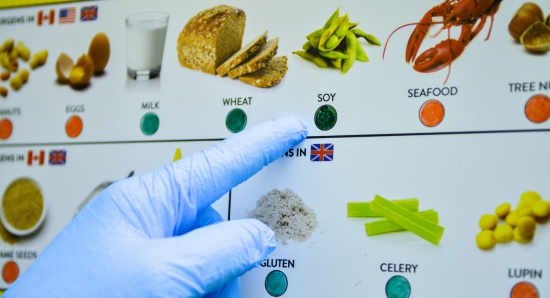Food Industry Expectations for 2017

2016 was certainly a busy year in food manufacturing and production, and 2017 promises to continue the tide of change as we contend with new regulatory requirements. Although the regulatory emphasis we’ve seen over the past decade or so may shift, food companies must keep food safety at the forefront of their priorities, because after all, food safety is about a whole lot more than just regulatory compliance.
Key events that impacted the food industry in 2016 included:
- FDA regulatory activity with FSMA implementation
- Preventive Control for Human Food PCQI Training
- USDA regulatory activity with HACCP validation
- Regulatory enforcement
- Product recalls and foodborne illness outbreaks
- Food safety advancements
Reminder: 2017 Compliance Deadlines
| Regulation | Type of Business | Compliance Date |
| Sanitary Transport Rule | Large Businesses | April 6, 2017 |
| Foreign Supplier Verification Program | All | May 27, 2017 |
| Preventive Control for Human Food | Small < 500 employees | September 18, 2017 |
| Preventive Control for Animal Food – Subpart C (Food Safety Plan) | Large Businesses | September 18, 2017 |
| Preventive Control for Animal Food – Subpart B (GMP’s) | Small < 500 employees | September 18, 2017 |
Food Safety Training
The Food Safety Preventive Control Alliance (FSPCA) estimates that more than 100,000 people will need to join the 25,000 from 2016 and complete the Preventive Control for Human Food training in the next three years to become Preventive Control Qualified Individuals. If you have not taken this training yet, it is advisable to do so well in advance of your required compliance date to start preparing for development and implementation of your food safety plans.
Regulatory Enforcement
FDA planned 300 facility audits in 2016 to train FDA investigators on how to assess compliance with FSMA requirements. This will lead to an expanded number of audits to be completed in coming years. FDA will issue warning letters and take regulatory enforcement actions for non-compliance. USDA also has traditional enforcement actions for notice of intended enforcements or notice of suspensions for non-compliance situations.
Criminal Investigations
Food agencies have demonstrated a willingness to work with the Department of Justice to open criminal investigations at companies that cause foodborne illness outbreaks. Senior management and quality assurance management must recognize this risk and take actions to both assess and mitigate it.
Product Recalls
Product recalls continue to be a major concern both for the industry and regulatory agencies. 2016 saw over 300 public recalls of FDA-regulated products, and more than 50 public recalls of USDA-regulated products, mostly involving pathogen contamination, allergen mislabeling, and foreign materials. In addition, the CDC reported 13 foodborne illness outbreaks. Affected products included flour, eggs, packaged salads, nuts, sprouts, beef products, and more. The industry must continue to work diligently to prevent recalls and outbreaks to protect the public as well livelihoods and company brands.
Food Safety Technologies
Advancements will continue in food safety technologies, including post lethality treatments, antimicrobial processes, and antimicrobial ingredients. We have seen widespread acceptance of high pressure processing (HPP) treatments of finished packaged products that result in increased food safety and quality. In addition, many companies are adding antimicrobial processes to treat products, with substances such as peracetic acid used as processing aids. There are also numerous antimicrobial ingredients that can be incorporated in a product formulation to promote food safety and inhibit bacterial growth. Companies should research options available to them based on their operations and product characteristics to determine what would work best in their operation. These technologies should be budgeted and incorporated over the next several years to enhance the safety of products and reduce risks.
Final Thoughts
Following the changes implemented in the past year, it will be essential to dedicate necessary resources for regulatory compliance and product/process improvements. Companies must work to be fully prepared for the next wave of regulations taking effect in 2017. Purposeful optimism should be the food industry’s attitude in the years ahead.







